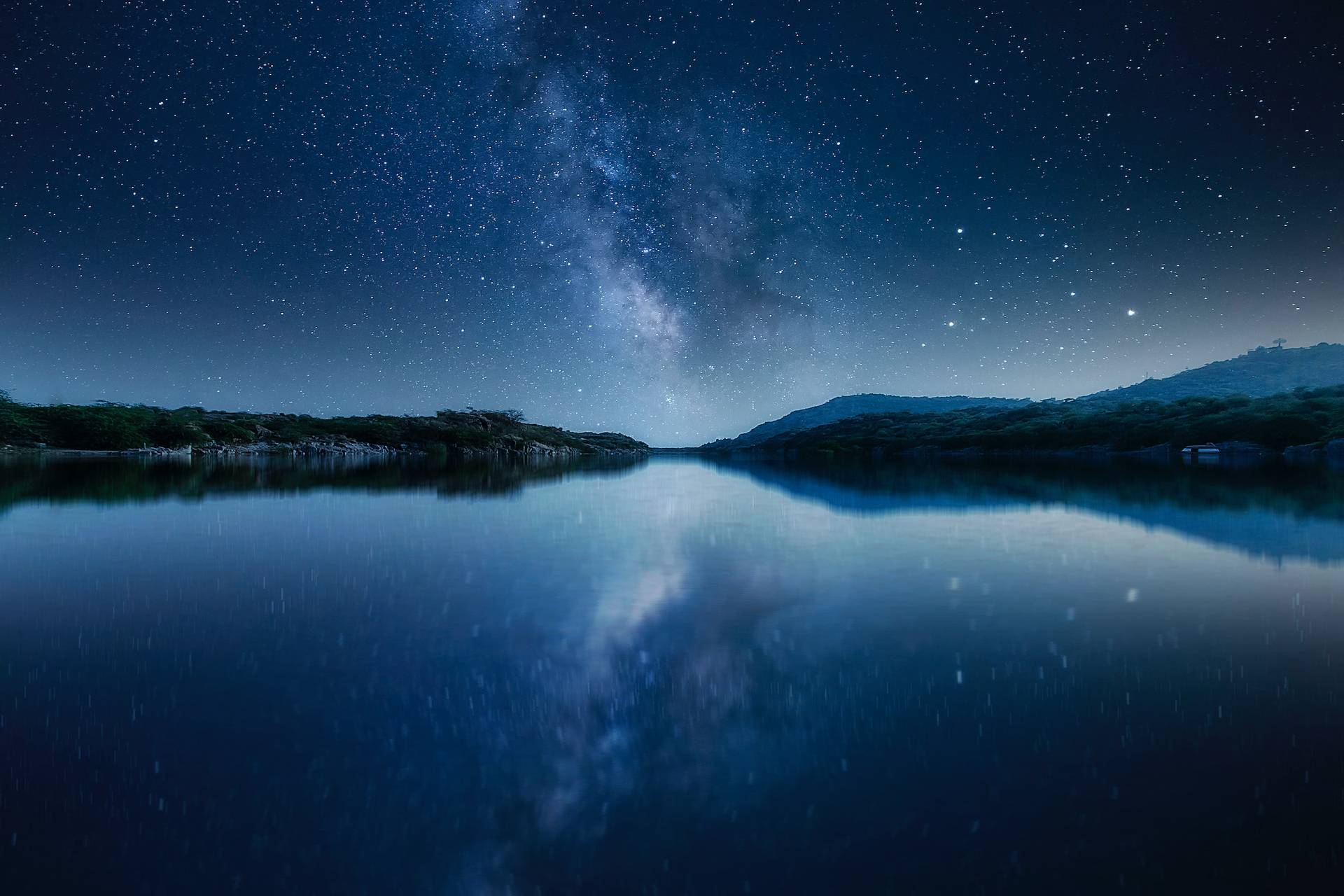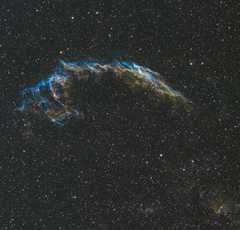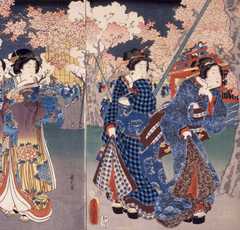
On Living Meaningfully in a Vast Universe: Robert Nozick
To establish meaning and calmness in the face of an immense, mysterious reality, the philosopher Robert Nozick argues that we should view our lives as part of a vast and continuing natural process.

When you look up at a clear night’s sky, what thoughts run through your head? Do the stars, burning trillions of miles away, their light — traveling at 186,000 miles per second — taking many years to reach us, make you feel awed? Curious? Inspired?
Or does the vast size and mystery of the universe make you feel rather queasily insignificant?
While we may sometimes feel like the vastness of the universe renders our lives meaningless, the philosopher Robert Nozick (1938 - 2002) argues that it is the very majesty of nature that should make us feel meaningfully connected.
In his 1989 work The Examined Life, Nozick writes:
It calms the spirit to see ourselves as part of a vast and continuing natural process. (Recall, for example, sitting beside the ocean, seeing and listening to wave after wave never ending, knowing the ocean’s immensity.) To see yourself as a small part of a vast process makes your own death seem not so very significant, unworrisome even. When we identity ourselves with the totality of the vast (apparently) never-ending processes of existence through time, we can find our significance in (being part of) that, and our own particular passing comes to seem to us of passing importance.
If we zoom out from our own perspectives and reflect on our lives sub specie aeternitatis (from the perspective of eternity), our everyday worries and concerns lose much of their force, but the significance of existence seems to deepen.
Our daily fluctuations in mood are a mere drop; the oceans of existence have been lapping for billions of years. We are part of something so much larger — something that will continue long after we are gone.
But do the parts we play matter?
Perhaps as well as defusing our everyday worries, adding this kind of perspective to our lives also risks making us feel insignificant.
After all, with or without us, the oceans will go on lapping; the planets will continue orbiting; stars will form and burn out.
How might we identify with or take comfort from the vast, mysterious processes that govern existence, if the parts we play in that existence are merely superfluous?
But Nozick wants to push back on this concern. “If you take away from the vastness of existence everything that is unnecessary or replaceable,” he writes, “the truncated existence that remains is not nearly as wonderful.” He continues:
The totality of existence and its processes over time is wonderful in part because of its great superfluity, and so our existence, the existence of kinds of things like us, is a characteristic and valuable part. This existence of ours, moreover, is permeated by the very same scientific laws and ultimate physical material that constitute all the rest of nature; a representative piece of nature, we encapsulate its sweep.
By really seeing ourselves as part of nature, Nozick says, by really identifying ourselves as the universe, and not seeing the universe as some separate entity (after all, we are made of exactly the same fundamental building blocks as stars), we simultaneously quieten the temporary anxieties of ego while deepening the significance of our existences.
We are not separate from but expressions of nature. We are the totality.
The universe is not separate from us; the universe is us
Nozick’s position is perhaps reminiscent of the great 17th-century philosopher Baruch Spinoza. In his 1677 work Ethics, Spinoza argues not for an anthropomorphic God, but suggests that nature itself is divine. And, as expressions of nature, we share in this divinity.
This perspective has profound implications, as contemporary philosopher Helen De Cruz notes in a recent essay on Spinoza’s philosophy:
Once you realize that you are an expression of the whole of nature, you come to realize that, although you will die, you are also eternal in a non-trivial sense...
Really absorbing the fact that we are part of the process, Nozick goes on to write, should make us feel kinship with all that exists:
I see people descended from a long sequence of human and animal forebears in an unnumbered train of chance events, accidental encounters, brutal takings, lucky escapes, sustained efforts, migrations, survivings of wars and disease. An intricate and improbable concatenation of events was needed to yield each of us, an immense history that gives each person the sacredness of a redwood, each child the whimsy of a secret. It is a privilege to be a part of the ongoing realm of existing things and processes. When we see and conceive of ourselves as a part of those ongoing processes, we identify with the totality and, in the calmness this brings, feel solidarity with all our comrades in existing.
Our short existences may appear random or isolated or insignificant, but their uniqueness contributes towards the grand totality of nature. By living them as best as we can, we’re (as Nozick puts it):
adding our own characteristic bit to reality’s eternal processes.
Perhaps, then, when we next look up at the clear night’s sky, by reflecting on our place in the totality — by truly recognizing that we are continuous with and connected to all that exists — we might find any prior feelings of disconnection or meaninglessness float away, dissipating in the vast ocean of air above.
What do you make of Nozick’s position?
What do you make of Nozick’s position? Do you think identifying with the totality of nature can ease our individual concerns and deepen our connection to the world around us? Or does routinely adding such perspective to our lives simply make them appear more insignificant than before?
Nozick is not the first to attempt to make sense of our place in the vastness of reality. Here are some further related reads on this topic:
- David Deutsch On Why It’s False to Say Our Lives Don’t Matter
- Albert Camus on Coping with Life’s Absurdity
- Kierkegaard On Finding the Meaning of Life
- God is Dead: Nietzsche’s Most Famous Statement Explained
- Nozick’s Experience Machine vs. Hedonism: Should You Plug In?
If you enjoy reflecting on these kinds of themes, you might like my free Sunday email, in which I distill one philosophical idea per week, and invite you to share your view. If you’re interested, you can sign up for free below (no spam, unsubscribe any time):

From the Buddha to Nietzsche: join 14,000+ subscribers enjoying my free Sunday Breakdown
In one concise email each Sunday, I break down a famous idea from philosophy. You get the distillation straight to your inbox.
💭 One short philosophical email each Sunday. Unsubscribe any time.
About the Author

Get one mind-opening philosophical idea distilled to your inbox every Sunday (free)

From the Buddha to Nietzsche: join 14,000+ subscribers enjoying a nugget of profundity from the great philosophers every Sunday:
★★★★★ (50+ reviews for Philosophy Break). Unsubscribe any time.

Take Another Break
Each break takes only a few minutes to read, and is crafted to expand your mind and spark your philosophical curiosity.





